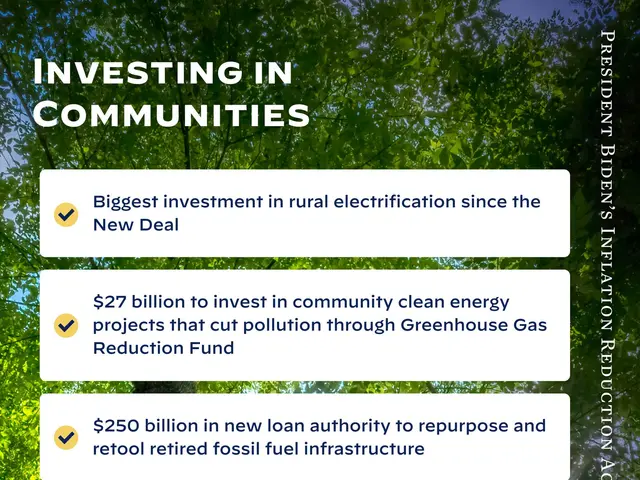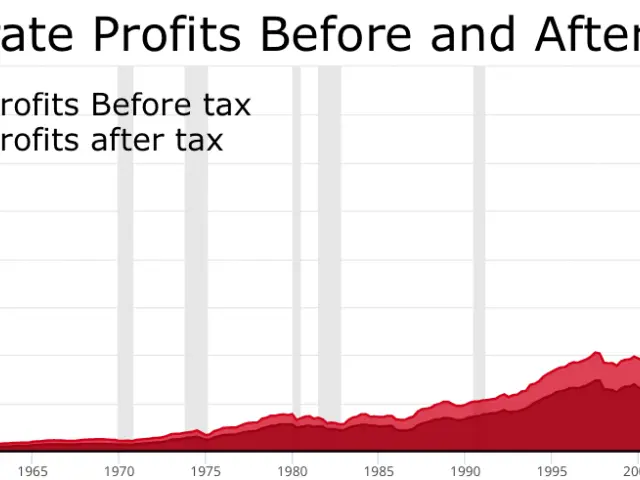Uncovering the Shared Qualities of 2025's Top-Tier Vanguard Sector ETF Performers
In the turbulent start of 2025, the S&P 500 has gained a remarkable 3.8% year-to-date, with certain sectors shining brightly amidst the volatility. Among these outperformers, the Vanguard Industrial ETF (VIS), Vanguard Energy ETF (VDE), and Vanguard Materials ETF (VAW) have managed to beat the S&P 500, displaying impressive growth.
These sector-specific ETFs, offered by investment manager Vanguard, provide exposure to the various components of the stock market. While they come with slightly higher expense ratios compared to the Vanguard S&P 500 ETF (VOO), the difference is relatively minimal. For instance, the Vanguard Industrial ETF has an expense ratio of 0.1%, while the Vanguard S&P 500 ETF has a lower expense ratio of 0.03%.
At a glance, the industrial, energy, and materials sectors have some commonalities and have shown signs of growth this year. These sectors, which lagged the S&P 500 in 2024, are now outperforming the index due to a resurgence in economic growth and an increased investor preference for value and income stocks.
Oil prices have skyrocketed at the beginning of 2025, boosting the energy sector and allowing the Vanguard Energy ETF to rise by nearly 10% in a few short weeks. With the possibility of a new administration favorable to domestic oil and gas production, the sector could witness a flurry of investment and growth. However, this could also potentially lead to higher oil and gas supplies and thus, lower prices.
Meanwhile, the industrial sector benefits from economic growth, infrastructure investments, deregulation, and tax cuts. The potential impact of the new administration's America-first policies could accelerate growth in the sector, with companies like Honeywell International moving away from the conglomerate business model to drive efficiency.
Lastly, the materials sector, which includes chemical companies, industrial product producers, and metal, paper, and packaging companies, is highly cyclical and sensitive to interest rates. With potential increases in domestic manufacturing and deregulation, the sector could offer attractive opportunities for value and income investors, despite its sensitivity to global economic fluctuations.
In conclusion, investors seeking value-focused pockets in the market may want to consider the energy, industrial, and materials sectors. It is essential to thoroughly evaluate the list of holdings in any ETF to ensure that it does not unintentionally increase your existing exposure to certain companies. For instance, analysts recommend considering alternative oil and gas companies in the case of the Vanguard Energy ETF, given its heavy allocation to major oil majors like ExxonMobil and Chevron.
Given the potential growth in the energy, industrial, and materials sectors, individuals looking to invest might consider allocating funds in these areas. With careful research and consideration, one could find ETFs like Vanguard's VIS, VDE, and VAW, which have demonstrated impressive performance in 2025 and could offer attractive returns in the future. These investments might require a slight increase in expense ratios compared to more general ETFs, but the potential gains could outweigh the additional costs.








